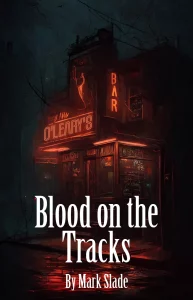
The Old Nurse’s Story Part 3
My heart sank at this, and I began to wish I had never left my darling. I went back to Dorothy and told her. James was gone out for the day, but she and me and Bessy took lights and went up into the nursery first, and then we roamed over the great large house, calling and entreating Miss Rosamond to come out of her hiding-place, and not frighten us to death in that way. But there was no answer; no sound.
‘Oh!’ said I at last, ‘Can she have got into the east wing and hidden there?’
But Dorothy said it was not possible, for that she herself had never been there; that the doors were always locked, and my lord’s steward had the keys, she believed; at any rate, neither she nor James had ever seen them: so I said I would go back, and see if, after all, she was not hidden in the drawing-room, unknown to the old ladies; and if I found her there, I said, I would whip her well for the fright she had given me; but I never meant to do it.
Well, I went back to the west drawing-room, and I told Mrs Stark we could not find her anywhere, and asked for leave to look all about the furniture there, for I thought now, that she might have fallen asleep in some warm hidden corner; but no! we looked, Miss Furnivall got up and looked, trembling all over, and she was nowhere there; then we set off again, everyone in the house, and looked in all the places we had searched before, but we could not find her. Miss Furnivall shivered and shook so much that Mrs Stark took her back into the warm drawing-room; but not before they had made me promise to bring her to them when she was found. Well-a-day! I began to think she never would be found, when I bethought me to look out into the great front court, all covered with snow. I was upstairs when I looked out; but it was such clear moonlight, I could see, quite plain, two little footprints, which might be traced from the hall door, and round the corner of the east wing. I don’t know how I got down, but I tugged open the great, stiff hall door; and, throwing the skirt of my gown over my head for a cloak, I ran out. I turned the east corner, and there a black shadow fell on the snow; but when I came again into the moonlight, there were the little footmarks going up up to the Fells. It was bitter cold; so cold that the air almost took the skin off my face as I ran, but I ran on, crying to think how my poor little darling must be perished, and frightened. I was within sight of the holly-trees when I saw a shepherd coming down the hill, bearing something in his arms wrapped in his maud. He shouted to me, and asked me if I had lost a bairn; and, when I could not speak for crying, he bore towards me, and I saw my wee bairnie lying still, and white, and stiff, in his arms, as if she had been dead. He told me he had been up the Fells to gather in his sheep, before the deep cold of night came on, and that under the holly-trees (black marks on the hill-side, where no other bush was for miles around) he had found my little lady my lamb- my queen- my darling stiff and cold, in the terrible sleep which is frost-begotten. Oh! the joy, and the tears of having her in my arms once again! for I would not let him carry her; but took her, maud and all, into my own arms, and held her near my own warm neck and heart, and felt the life stealing slowly back again into her little gentle limbs. But she was still insensible when we reached the hall, and I had no breath for speech. We went in by the kitchen door.
‘Bring the warming-pan,’ said I; and I carried her upstairs and began undressing her by the nursery fire, which Bessy had kept up. I called my little lammie all the sweet and playful names I could think of even while my eyes were blinded by my tears; and at last, oh! at length she opened her large blue eyes. Then I put her into her warm bed, and sent Dorothy down to tell Miss Furnivall that all was well; and I made up my mind to sit by my darling’s bedside the live-long night. She fell away into a soft sleep as soon as her pretty head had touched the pillow, and I watched by her until morning light; when she wakened up bright and clear or so I thought at first and, my dears, so I think now.
She said that she had fancied that she should like to go to Dorothy, for that both the old ladies were asleep, and it was very dull in the drawing-room; and that, as she was going through the west lobby, she saw the snow through the high window falling, falling, soft and steady; but she wanted to see it lying pretty and white on the ground; so she made her way into the great hall; and then, going to the window, she saw it bright and soft upon the drive; but while she stood there, she saw a little girl, not so old as she was, ‘but so pretty,’ said my darling, ‘and this little girl beckoned to me to come out; and oh, she was so pretty and so sweet, I could not choose but go.’ And then this other little girl had taken her by the hand, and side by side the two had gone round the east corner.
‘Now you are a naughty little girl, and telling stories,’ said I. ‘What would your good mamma, that is in heaven, and never told a story in her life, say to her little Rosamond, if she heard her and I dare say she does- telling stories!’
‘Indeed, Hester,’ sobbed out my child, ‘I’m telling you true. Indeed I am.’
‘Don’t tell me!’ said I, very stern. ‘I tracked you by your footmarks through the snow; there were only yours to be seen: and if you had had a little girl to go hand-in-hand with you up the hill, don’t you think the footprints would have gone along with yours?’
‘I can’t help it, dear, dear Hester,’ said she, crying, ‘if they did not; I never looked at her feet, but she held my hand fast and tight in her little one, and it was very, very cold. She took me up the Fell-path, up to the holly-trees; and there I saw a lady weeping and crying; but when she saw me, she hushed her weeping, and smiled very proud and grand, and took me on her knee, and began to lull me to sleep; and I that’s all, Hesterbut that is true; and my dear mamma knows it is,’ said she, crying. So I thought the child was in a fever, and pretended to believe her, as she went over her story over and over again, and always the same. At last Dorothy knocked at the door with Miss Rosamond’s breakfast; and she told me the old ladies were down in the eating parlour, and that they wanted to speak to me. They had both been into the night-nursery the evening before, but it was after Miss Rosamond was asleep; so they had only looked at her, not asked me any questions.
‘I shall catch it,’ thought I to myself, as I went along the north gallery. ‘And yet,’ I thought, taking courage, ‘it was in their charge I left her; and it’s they that’s to blame for letting her steal away unknown and unwatched.’ So I went in boldly, and told my story. I told it all to Miss Furnivall, shouting it close to her ear; but when I came to the mention of the other little girl out in the snow, coaxing and tempting s her out, and willing her up to the grand and beautiful lady by the holly- tree, she threw her arms up her old and withered arms and cried aloud, ‘Oh! Heaven, forgive! Have mercy!’
Mrs Stark took hold of her; roughly enough, I thought; but she was past Mrs Stark’s management, and spoke to me, in a kind of wild warning and authority.
‘Hester! keep her from that child! It will lure her to her death! That evil child! Tell her it is a wicked, naughty child.’ Then Mrs Stark hurried me out of the room; where, indeed, I was glad enough to go; but Miss Furnivall kept shrieking out, ‘Oh! have mercy! Wilt Thou never forgive! It is many a long year ago’–
I was very uneasy in my mind after that. I durst never leave Miss Rosamond, night or day, for fear lest she might slip off again, after some fancy or other; and all the more because I thought I could make out that Miss Furnivall was crazy, from their odd ways about her; and I was afraid lest something of the same kind (which might be in the family, you know) hung over my darling. And the great frost never ceased all this time; and whenever it was a more stormy night than usual, between the gusts, and through the wind, we heard the old lord playing on the great organ. But, old lord, or not, wherever Miss Rosamond went, there I followed; for my love for her, pretty helpless orphan, was stronger than my fear for the grand and terrible sound. Besides, it rested with me to keep her cheerful and merry, as beseemed her age. So we played together, and wandered together, here and there, and everywhere; for I never dared to lose sight of her again in that large and rambling house. And so it happened, that one afternoon, not long before Christmas Day, we were playing together on the billiard-table in the great hall (not that we knew the way of playing, but she liked to roll the smooth ivory balls with her pretty hands, and I liked to do whatever she did); and, by-and-by, without our noticing it, it grew dusk indoors, though it was still light in the open air, and I was thinking of taking her back into the nursery, when, all of a sudden, she cried out:
‘Look, Hester! look! there is my poor little girl out in the snow!’
I turned towards the long narrow windows, and there, sure enough, I saw a little girl, less than my Miss Rosamond dressed all unfit to be out-of-doors such a bitter nightcrying, and beating against the window-panes, as if she wanted to be let in. She seemed to sob and wail, till Miss Rosamond could bear it no longer, and was flying to the door to open it, when, all of a sudden, and close up upon us, the great organ pealed out so loud and thundering, it fairly made me tremble; and all the more, when I remembered me that, even in the stillness of that dead-cold weather, I had heard no sound of little battering hands upon the window-glass, although the Phantom Child had seemed to put forth all its force; and, although I had seen it wail and cry, no faintest touch of sound had fallen upon my ears. Whether I remembered all this at the very moment, I do not know; the great organ sound had so stunned me into terror; but this I know, I caught up Miss Rosamond before she got the hall-door opened, and clutched her, and carried her away, kicking and screaming, into the large bright kitchen, where Dorothy and Agnes were busy with their mince-pies.
‘What is the matter with my sweet one?’ cried Dorothy, as I bore in Miss Rosamond, who was sobbing as if her heart would break.
‘She won’t let me open the door for my little girl to come in; and she’ll die if she is out on the Fells all night. Cruel, naughty Hester,’ she said, slapping me; but she might have struck harder, for I had seen a look of ghastly terror on Dorothy’s face, which made my very blood run cold.
‘Shut the back-kitchen door fast, and bolt it well,’ said she to Agnes. She said no more; she gave me raisins and almonds to quiet Miss Rosamond: but she sobbed about the little girl in the snow, and would not touch any of the good things. I was thankful when she cried herself to sleep in bed. Then I stole down to the kitchen, and told Dorothy I had made up my mind. I would carry my darling back to my father’s house in Applethwaite: where, if we lived humbly, we lived at peace. I said I had been frightened enough with the old lord’s organ-playing; but now that I had seen for myself this little moaning child, all decked out as no child in the neighbourhood could be, beating and battering to get in, yet always without any sound or noise with the dark wound on its right shoulder; and that Miss Rosamond had known it again for the phantom that had nearly lured her to her death (which Dorothy knew was true); I would stand it no longer.
I saw Dorothy change colour once or twice. When I had done, she told me she did not think I could take Miss Rosamond with me, for that she was my lord’s ward, and I had no right over her; and she asked me, would I leave the child that I was so fond of, just for sounds and sights that could do me no harm; and that they had all had to get used to in their turns? I was all in a hot, trembling passion; and I said it was very well for her to talk, that knew what these sights and noises betokened, and that had, perhaps, had something to do with the Spectre-Child while it was alive. And I taunted her so that she told me all she knew, at last; and then I wished I had never been told, for it only made me afraid more than ever.
She said she had heard the tale from old neighbours, that were alive when she was first married; when folks used to come to the hall sometimes, before it had got such a bad name on the country side: it might not be true, or it might, what she had been told.
The old lord was Miss Furnivall’s father– Miss Grace as Dorothy called her, for Miss Maude was the elder, and Miss Furnivall by rights. The old lord was eaten up with pride. Such a proud man was never seen or heard of; and his daughters were like him. No one was good enough to wed them, although they had choice enough; for they were the great beauties of their day, as I had seen by their portraits, where they hung in the state drawing-room. But, as the old saying is, ‘Pride will have a fall’; and these two haughty beauties fell in love with the same man, and he no better than a foreign musician, whom their father had down from London to play music with him at the Manor House. For, above all things, next to his pride, the old lord loved music. He could play on nearly every instrument that ever was heard of: and it was a strange thing it did not soften him; but he was a fierce dour old man, and had broken his poor wife’s heart with his cruelty, they said. He was mad after music, and would pay any money for it. So he got this foreigner to come; who made such beautiful music, that they said the very birds on the trees stopped their singing to listen. And, by degrees, this foreign gentleman got such a hold over the old lord, that nothing would serve him but that he must come every year; and it was he that had the great organ brought from Holland, and built up in the hall, where it stood now. He taught the old lord to play on it; but many and many a time, when Lord Furnivall was thinking of nothing but his fine organ, and his finer music, the dark foreigner was walking abroad in the woods with one of the young ladies; now Miss Maude, and then Miss Grace.















